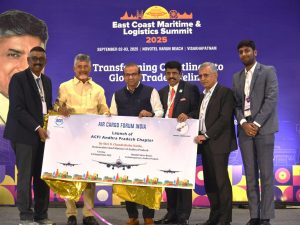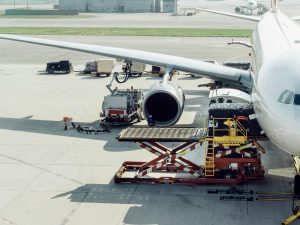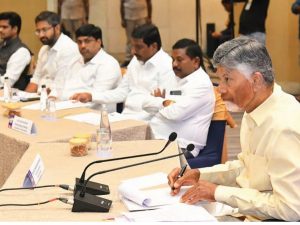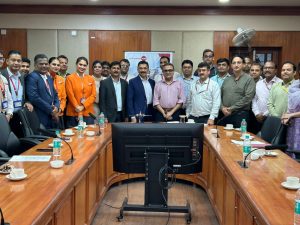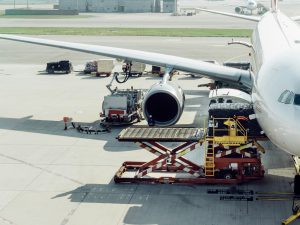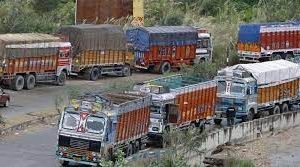Pradeep Panicker, CEO, GMR Hyderabad International Airport said, “Enhancing international connectivity through double-dipping for freighters is vital.” He added, “Streamlining customs via a digital single window and expanding the Express Cargo Clearance System (ECCS) across airports will enable faster, paperless processing. Export growth can be supported by government-backed packhouses, irradiation facilities and plant quarantine units near airports. Promoting green logistics and implementing a uniform GST for multimodal cargo will encourage sustainable and integrated transport.” Panicker also stressed that, “Investment in air and rail corridors will improve hinterland connectivity. These reforms collectively address infrastructure gaps, improve operational efficiency and support India’s ambition to become a global air cargo leader.”
Read More »India Cargo Awards return to honour India’s finest
The much-awaited 10th edition of Indian Cargo Awards 2025 is back to felicitate the ‘Heroes’ of the Indian air cargo and logistics fraternity. Known as the ‘Oscars of the Industry,’ the award function is being hosted by DDP Group (Cargo Talk) in New Delhi on 8 September 2025. The award function serves as an all-India platform created with a vision to recognise skills and excellence across various domains, including air, road, rail, allied services, warehousing, technology, 3PL and more. The award ceremony stands as a proud moment to celebrate the visionaries, innovators and dedicated professionals of the air cargo and logistics industry. It is an occasion to recognise their relentless efforts, resilience and contribution in driving efficiency, fostering trade and strengthening India’s position in the global supply chain. By felicitating these trailblazers, we not only honour their achievements but also inspire the industry to continue embracing excellence, technology and sustainability in shaping the future of logistics. The upcoming award function is a moment of pride and celebration for the air cargo and logistics industry, bringing together leaders, professionals and innovators who have been instrumental in shaping the sector’s growth.
Read More »ACFI launches Andhra Pradesh chapter in Visakhapatnam
The Air Cargo Forum India (ACFI) formally launched its Andhra Pradesh Chapter in Visakhapatnam, in the presence of the Nara Chandrababu Naidu, Chief Minister, Andhra Pradesh. The event was also graced by B.C. Janardhan Reddy, Minister for Infrastructure & Investment and T.G. Bharat, Minister for Industries & Commerce, Government of Andhra Pradesh. The launch witnessed an overwhelming response, bringing together over 350 delegates, including senior leaders from the air cargo, logistics, trade and industry bodies. The formation of the Andhra Pradesh Chapter marks a significant milestone in strengthening the State’s position as a growing hub for air cargo and logistics in India. As part of the proceedings, the ACFI Board actively participated in the CEO Roundtable, where critical industry issues such as the Open Sky Policy and Double Dipping were raised. On behalf of ACFI, Sanjiv Edward, President of ACFI and Satish Lakkaraju, Chairman – Outreach Pillar & Partnerships, made strong representations on these matters. The discussions were well received by the Chief Minister, reflecting the government’s commitment to supporting the industry. Sanjiv Edward, President ACFI, said, “The launch of the Andhra Pradesh Chapter is a major step towards enhancing the State’s role in India’s air cargo growth story. With ACFI’s vision of acting as a catalyst for air cargo growth and the Govt’s focus on developing integrated logistics hubs, we are confident that Andhra Pradesh will emerge as a leader in logistics on the Eastern side.” Satish Lakkaraju, Chairman – Outreach Pillar & Partnerships, ACFI, said, “Our discussions with the Chief Minister on critical issues like the Open Sky Policy and Double Dipping reflect ACFI’s commitment to addressing industry challenges and enabling sustainable growth.”
Read More »Airfreight rates on key trade lanes remain same: TAC Index
According to the latest figures from the Baltic Exchange Airfreight Index, which uses TAC Index data based on spot and contract pricing, airfreight rates on key trade lanes out of Hong Kong continued to reflect the quieter summer period in August, ahead of a predicted pick up for the peak season. The data showed that rates from Hong Kong to North America picked up slightly in August, increasing to $5.29 per kg compared with $5.11 per kg in July. From Hong Kong to Europe, rates were down slightly in August at $4.26 per kg compared with $4.39 per kg a month earlier. Rates on both trades were down on a year ago, prices from Hong Kong to North America were 11.2 per cent down year on year in August, while to Europe they were 3.8 per cent down. The decrease from last year’s levels reflects weaker demand levels and lower jet-fuel prices. In its end of August weekly market update, TAC Index said rates on a global basis had been flat in August due to the quieter summer period. “Despite reports of continuing high demand in certain sectors ranging from garments and pharma to electronics and semiconductors as well as capacity constraints causing delays in certain markets, overall rates were still flat to down as the traditionally quieter summer ‘low season’ continued,” TAC said.
Read More »Euler Motors to give 200 EVs for intracity logistics to Pickkup.io
Euler Motors has signed MoU with Pickkup.io for 200 electric four-wheeler cargo vehicles. The fleet will be deployed across to support high-frequency intracity logistics and last-mile delivery operations. This agreement marks the third phase of deliveries under the ongoing partnership between the two companies. Euler Motors has already delivered 25 vehicles. Ankush Sharma, Co-founder & CEO, Pickkup.io, said, “This marks the third delivery phase under our ongoing MoU with Euler. What sets them apart is their on-time services and openness to feedback. The service ecosystem they’ve built is solid and we’re already in discussions to scale up with additional units in the future. This journey and its achievements are the result of joint efforts by everyone who has contributed in their own way — our driver partners, ground team, admin team and operations team — each working with their fullest dedication to make our services seamless and our customer experience exceptional, all under the banner of Pickkup.”
Read More »Andhra Pradesh will soon get Logistics & Civil Aviation University: CM
To boost logistics activity in the region, N Chandrababu Naidu, Chief Minister of Andhra Pradesh has announced that the state will be developed as a key logistics hub on the East Coast. He also mentioned that state government will soon set up a Logistics and a Civil Aviation University to strengthen the sector, said CM during the East Coast Maritime Logistics Summit, organised jointly by the Global Forum for Sustainable Transformation (GFST) and Maritime Gateway in Visakhapatnam. The CM emphasised, “Logistics sector currently contributes around 1 per cent to the Gross State Domestic Product (GSDP). The goal is of raising this share to 3 per cent in the coming years.” As per the reports, he also proposed the creation of a 20-member advisory body comprising representatives from port and shipping industries to guide the state on developing Andhra Pradesh as a global logistics hub. He said that with six operational ports and four more under development, the state is well-positioned to expand its port-led economy
Read More »AISATS receives DGCA safety clearance certification
Air India SATS Airport Services (AISATS) has become the first ground handling company in India to be awarded the newly mandated Safety Clearance by the Directorate General of Civil Aviation (DGCA). This landmark achievement positions AISATS as a pioneer in aviation safety and operational excellence and underscores India’s emergence as a global leader in aviation standards. The DGCA introduced this mandate in line with International Civil Aviation Organisation (ICAO) recommendations, requiring ground handlers to demonstrate robust Safety Management Systems (SMS), risk controls, staff training programs and infrastructure readiness. This mandate was in response to increasing air traffic and the need for standardised safety protocols, DGCA introduced mandatory safety clearance requirements for Ground Handling Service Providers (GHSPs). Under the new Civil Aviation Requirements (CAR), GHSPs must appoint accountable managers, station managers and safety and quality managers, while ensuring recurrent training for ground personnel. With this regulation, India becomes the second country globally to formally regulate ground handling services. AISATS has become the first and only Ground Handler in India to receive the Safety Clearance Certificate No. GHSP/001, issued by DGCA under these newly established safety regulations. This milestone follows months of rigorous documentation review and operational inspections conducted by DGCA across all AISATS-managed airports. The Quality Management, Risk and Compliance and Safety teams at AISATS developed a comprehensive suite of Operations and Training Manuals, which were highly commended by DGCA officials for setting a new industry benchmark. Ramanathan Rajamani, CEO, AISATS, “We are honoured to be the first ground handler in India to secure DGCA’s Safety Clearance. Safety and quality have always been the cornerstone of AISATS’ operations. This recognition reflects our strong culture of accountability, continuous training and operational excellence.”
Read More »IATA records 5.5 % rise in global air cargo demand in July 2025
According to the International Air Transport Association’s (IATA) latest report, there has been a 5.5 per cent increase in global air cargo demand in July 2025 compared to the same month in 2024, with international operations up 6.0 per cent. Capacity also rose by 3.9 per cent year-on-year. Willie Walsh, IATA’s Director General, said, “Air cargo demand grew 5.5 per cent in July, a strong result. Most major trade lanes reported growth, with one significant exception of Asia – North America, where demand was down 1.0 per cent year-on-year.” He added, “A sharp decline in e-commerce, as the US de minimis exemptions on small shipments expired, was likely offset by shippers frontloading goods in advance of rising tariffs for imports to the US.”
Read More »Dachser expands its service portfolio across APAC region
Dachser has expanded its service portfolio across the Asia Pacific (APAC) region. Through the expansion, Dachser Air & Sea Logistics (ASL) APAC, further strengthens its position to support the region’s growing market demands. Leveraging its deep industry expertise and robust multimodal network, Dachser offers an integrated end-to-end supply chain solution for wine and spirits businesses operating between Europe and APAC. The offering combines air and sea freight services with the well-established European network of Dachser Road Logistics, delivering efficiency, reliability and product integrity from origin to destination. The APAC wine and spirits market is expected to grow at a CAGR of 5-6% until 2030, driven by rising consumer demand and expanding trade. “The region presents significant opportunities for Dachser to apply our established expertise in wine and spirits logistics,” said Roman Mueller, Managing Director for Air & Sea Logistics Asia Pacific at Dachser. “At Dachser, we understand the unique needs of our customers and are committed to delivering wine and spirits with excellence, ensuring customers experience a first-class journey from European wineries to markets across APAC.”
Read More »ATMA urges to reduce GST to streamline logistics ops
The Automotive Tyre Manufacturers Association (ATMA) has called for a reduction in Goods and Services Tax (GST) on tyres, arguing that the current rate of 28 per cent, the highest slab, burdens vehicle operators and inflates logistics costs across sectors. ATMA said lowering GST on tyres would directly cut vehicle operating expenses, particularly in the commercial segment and benefit farmers, small traders, service providers, as well as infrastructure and mining industries. At present, all major categories of automotive tyres attract 28 per cent GST, while tractor tyres and aircraft tyres are taxed at 18 per cent and 5 per cent respectively. In a representation to the Union Finance Minister, ATMA stressed that tyres are fundamental enablers of mobility across trucks, buses, passenger cars, two and three-wheelers, tractors and construction and mining equipment and should not be taxed on par with luxury goods.
Read More » Cargo Breaking News
Cargo Breaking News


